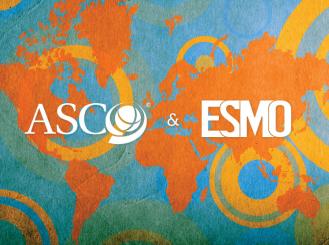Oct 07, 2016
The European Society for Medical Oncology (ESMO) and ASCO collaborated to publish the 2016 edition of the ESMO/ASCO Recommendations for a Global Curriculum (GC) in Medical Oncology, a set of common guidelines to offer a global perspective of the clinical training required for physicians to qualify as medical oncologists.
“Recent significant advances in medical oncology made updating the curriculum a necessary step,” said ESMO Chair of the ESMO/ASCO Global Curriculum Working Group Christian Dittrich, MD, of Kaiser Franz Josef-Spital, Austria.
The integration of molecular pathology to determine the presence of biomarkers as criteria to select appropriate new therapies is one of the most appreciable novelties now included in the 2016 edition of the GC, making it a fundamental reference for internationally recognized standards for medical oncology training.
Building on the improvements to the inaugural 2004 edition implemented in 2010, this third edition has been expanded and updated to include:
- Stand-alone chapters/section: Immunotherapy; Biological Therapy; Pathology; Molecular Pathology; Laboratory Medicine; Translational Research; Genetic Counselling
- New chapters/(sub)sections: Principles of Personalised Cancer Medicine; Molecular Imaging; Rare Cancers; Cancer Treatment in Patients With Comorbidities; Survivorship
- Expanded (sub)chapters: Targeted therapies are integrated into the (sub)chapters of the separate tumour entities wherever suitable
The chapter/section structure has also been revised according to new pedagogical principles. Each topic is now divided into four categories: Objectives, Awareness, Knowledge and Skills.
“As Chair of the ESMO/ASCO Global Curriculum Working Group I am more than pleased that our joint endeavour to conceive and formulate a new edition of the Global Curriculum has met its goal,” said Dr. Dittrich. “More than one hundred contributors have dedicated their oncologic and didactic expertise to establish the updated recommendations to be fulfilled for qualifying as medical oncologist. The endorsements by 47 national oncology societies worldwide will allow patients, wherever they live, to get state-of-the-art cancer care.”
“Working on the ESMO/ASCO Global Curriculum has been very rewarding,” said Michael Kosty, MD, FACP, FASCO, ASCO Representative on the Global Curriculum Working Group. “It has brought together clinician-educators from around the world to craft a framework which represents what a physician trained in oncology should know.”
The Global Curriculum is a living document, and as such must be regularly reviewed and updated. “The future of our specialty is in the hands of those who we are now training. To the degree we are able to establish a uniform, truly global curriculum, we will be helping patients the world over,” Dr. Kosty said.
“The ESMO/ASCO GC can be considered the ultimate guide in becoming a medical oncologist,” said Mário Fontes e Sousa, a doctoral student at the Portuguese Institute of Oncology, Portugal. “It's one of the most important tools for trainee education that a medical oncologist in training could ask for.”
ESMO President Fortunato Ciardiello, MD, said, “The release of the 2016 edition of the Global Curriculum highlights ESMO’s and ASCO’s commitment to supporting oncologists’ education worldwide so that they can further sharpen their expertise, adapt to the rapid changes in standards of practice, and learn how to collaborate effectively with other specialists in an integrated, multi-professional setting.”

